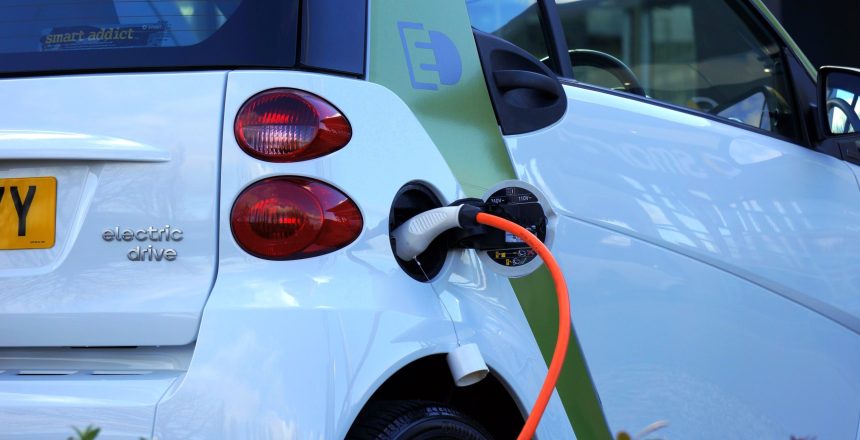As the world shifts toward cleaner and more sustainable modes of transportation, electric vehicles are becoming more popular among drivers.
Electric vehicles have several advantages over gasoline-powered vehicles, including lower carbon emissions and lower fuel costs. However, with so many factors to take into account, deciding whether an electric vehicle is right for you can be challenging.
In this article, we’ll explore the advantages and disadvantages of electric vehicles and gas cars to help you make an informed decision.
Key Takeaways
In general, electric vehicles are thought to have a lower environmental impact than gasoline-powered vehicles.
Electric cars have lower maintenance costs due to their simpler design and fewer components that require regular maintenance.
Electric vehicles require electricity, which can be obtained from a variety of sources and varies in cost depending on where and when it is charged.
Table of Contents
Environmental Impact: Electric Cars vs Gas Cars
Electric cars, in general, are thought to have a lower environmental impact than gas-powered cars because they don’t emit any emissions from the tailpipe. In contrast, gasoline-powered vehicles emit various pollutants, such as nitrogen oxides, particulate matter, and carbon dioxide. Additionally, the environmental impact of electric vehicles is determined by how the electricity that powers them is generated.
When electricity is generated by renewable energy sources such as solar or wind power, the environmental impact of electric vehicles is considerably lowered. However, if electricity is generated from nonrenewable sources such as coal or natural gas, the environmental impact of electric vehicles is higher.
Importance of Considering the Environmental Impact Of Electric and Gas Cars
Considering the environmental impact of electric and gas cars goes beyond simply promoting a cleaner environment. It is also critical in the fight against climate change. Gas-powered cars contribute significantly to greenhouse gas emissions, whereas electric cars emit fewer greenhouse gases and can significantly reduce our carbon footprint when powered by renewable energy sources.
Factors Affecting Air Pollution Caused By Electric And Gas Cars
Various factors can influence air pollution caused by electric and gas cars. These are some examples:
- Vehicle Efficiency: The efficiency of both electric and gas cars can impact the amount of pollution they emit. The more fuel-efficient the vehicle, the less fuel it consumes, resulting in lower emissions.
- Maintenance: Car maintenance can also affect air pollution. A well-maintained vehicle with a clean air filter and properly inflated tires can run more efficiently and emit less pollution.
- Traffic: Traffic jams and stop-and-go driving can increase emissions from gasoline vehicles, whereas electric vehicles emit zero emissions regardless of traffic conditions.
In summary, several factors, including the power source, vehicle efficiency, maintenance, and traffic conditions, can affect the air pollution caused by electric and gas cars.
Factors Affecting The Environmental Impact Of Manufacturing And Disposal Of Electric And Gas Cars
The environmental impact of electric and gas cars extends beyond their use and can be influenced by various factors during their manufacture and disposal. Here are a few factors that can have an impact on the environmental impact of electric and gas car manufacturing and disposal:
- Raw Materials: The production of electric and gas vehicles necessitates many raw materials, such as metals, plastics, and rare earth minerals. These materials’ extraction and processing can have negative environmental consequences such as deforestation, water pollution, and habitat destruction.
- Energy Consumption: Cars require energy to be manufactured, and the amount consumed varies depending on the manufacturing process. A more energy-efficient manufacturing process can reduce automobile production’s environmental impact.
- Waste Generation: The production and disposal of vehicles can result in waste, including hazardous waste such as batteries and electronics. The proper disposal of these wastes is critical to reducing their environmental impact.
- Recycling: Recycling car parts can help to reduce the environmental impact of car production and disposal. The more components that can be recycled, the fewer raw materials that need to be extracted and processed, and the less waste produced.
In summary, several factors, including raw materials, energy consumption, waste generation, and recycling, can impact the environmental impact of electric and gas cars.
Performance Comparison: Electric Cars vs Gas Cars

Electric and gas cars have distinct performance characteristics that distinguish them. Electric vehicles have instant torque, allowing for quick acceleration and a smooth, quiet ride. Gasoline cars, on the other hand, have a longer range and faster refueling time, but they produce more noise and emissions.
Pros And Cons Of Electric Cars
Pros:
- Because electric vehicles have instant torque, they can accelerate quickly and smoothly.
- Electric vehicles operate quietly, resulting in a more peaceful driving experience.
- When compared to gas-powered vehicles, they have lower fuel and maintenance costs.
- Electric vehicles provide a quieter and smoother driving experience.
Cons:
- When compared to gas-powered vehicles, electric cars have a shorter range and require longer charging times.
- Higher initial costs and a scarcity of charging infrastructure.
- The battery life of electric vehicles may degrade over time, necessitating costly replacement.
Pros And Cons Of Gas Cars
Pros:
- Gas-powered vehicles have a greater range and can be refueled at gas stations.
- They are less expensive to purchase than electric vehicles.
- Some drivers may prefer the performance and driving experience of gas-powered vehicles.
- Gas-powered vehicles have a well-established maintenance and repair infrastructure.
Cons:
- Gas prices can be volatile and costly, resulting in increased fuel costs.
- Regular maintenance and oil changes are required for gas-powered vehicles, which can be costly.
- To encourage the transition to electric vehicles, governments may levy higher taxes and fees on gas-powered vehicles.
Maintenance And Repair Costs: Electric Cars vs Gas Cars
While gas cars are often less expensive and easier to refuel, owning an electric car has several advantages that go beyond cost. One of the major benefits is that there are no mechanical parts to break down under the hood, no need for oil changes, no exhaust system, and longer-lasting brakes. Because of the lack of engine noise, EV drivers frequently find the driving experience more relaxing.
Electric cars also have lower maintenance costs than gasoline engines because electric motors and batteries require less routine maintenance. However, both gasoline and electric vehicles necessitate expenses such as auto insurance, tire rotations, and brake maintenance.
Resale Value Comparison: Electric Cars vs Gas Cars
The resale value of a car can be influenced by a number of factors, including supply and demand, historical data, condition, and mileage. Electric vehicle resale value has traditionally been lower than gas vehicle resale value due to factors such as the one-time tax credit and the limited range of older models.
However, recent market trends have seen a significant increase in the resale value of electric vehicles, particularly for newer models with longer driving ranges. The current high demand for electric cars, combined with ongoing supply shortages of new vehicles, has contributed to an increase in their resale value.
Gas cars have a higher resale value than electric cars on average, but this can vary depending on the specific make and model. While gas cars may retain more of their value in the short term, electric cars may have a higher long-term resale value as the market shifts toward electric vehicles.
Factors That Affect The Resale Value Of Electric And Gas Cars
Several factors can affect the resale value of both electric and gas cars, including:
- Mileage: Vehicles with lower mileage typically have a higher resale value.
- Condition: The better the condition of the car, the more it is likely to be worth.
- Brand: Cars from well-known and dependable brands typically have higher resale values.
- Features: Cars with advanced features and technology may sell for a higher price.
- Market demand: The popularity of a particular make and model can affect its resale value.
- Age: The value of a car typically decreases as it ages.
- Fuel Efficiency: Gas cars with higher fuel efficiency may have higher resale values, whereas electric cars may retain their value over time due to their efficiency and lower fuel costs.
Cost Comparison: Electric Cars vs Gas Cars
When comparing the cost of owning an electric car versus a gas car, the ongoing cost of fueling and charging must be considered. Gas cars run on gasoline, which varies in price and costs about $60 to fill up on average. Electric vehicles require electricity, which can come from a variety of sources and vary in price depending on where and when you charge. Because of their higher energy efficiency, electric vehicles are typically less expensive to operate.
Fuel and Charging Costs
Electric and gas cars use different fuels and have different efficiency levels, resulting in different fuel costs. Gas cars require gasoline to run, and the price of gasoline varies over time and location. In August 2022, the national average for a gallon of regular gasoline was $4.19, and the cost to fill up a standard gasoline car can be just under $60. More fuel-efficient vehicles can travel more miles per gallon, requiring fewer fill-ups and costing less per mile.
Electric vehicles, on the other hand, rely on electricity to power their batteries. Prices for electricity can also vary depending on where and when you charge your vehicle. Electricity can be generated using a variety of methods, including gas or coal combustion, as well as renewable sources such as hydropower, wind power, or solar power. Electricity is less expensive at home than it is at public charging stations, and some energy companies may charge a premium for using electricity during peak hours.
Factors That Affect the Fuel Cost of Electric Car And Gas Cars
Several factors can influence the fuel cost of both electric and gasoline vehicles. The most important factor for gas cars is the cost of gasoline. Gas prices can change due to several factors such as global oil production, political tensions, and natural disasters. The frequency and cost of refueling are also affected by the size of the gas tank and the fuel efficiency of the vehicle.
The most significant factor in fuel cost for electric vehicles is the cost of electricity. The cost of electricity varies according to location, time of day, and electricity source. The frequency and cost of charging are also affected by the size of the battery and the efficiency of the vehicle.
Related article: 7 Fuel Pump Failure Symptoms Every Driver Should Know
Cost Savings Of Owning An Electric Car
Because of lower fuel and maintenance costs, owning an electric car can save you money in the long run. Electric cars have a simpler design and fewer components, which means they require less maintenance than gas cars. They also do not require oil changes or air filter replacements, which are common in gasoline vehicles and can be costly.
Aside from these savings, many states and countries provide incentives such as tax credits or rebates for purchasing an electric vehicle. These incentives can reduce the initial cost of purchasing an electric car while also providing ongoing cost savings.
Tax Comparison: Electric Vehicle vs Gas Car Tax
Depending on the jurisdiction in which they are registered, electric vehicles and gas cars may be subject to different tax requirements.
Electric vehicles may be eligible for tax breaks or rebates in some areas, whereas gas cars are not. In the United States, for example, buyers of new electric vehicles may be eligible for a federal tax credit of up to $7,500, depending on the make and model. Additional incentives, such as sales tax exemptions or rebates, may be provided by state and local governments.
Depending on where you live, the tax implications of owning an electric vehicle versus a gas car can vary greatly. Before buying a car, it is critical to research the tax laws in your area.
Which Is The Better Option?
The choice between electric and gas vehicles is subjective and depends on your specific needs and preferences. If you value environmental responsibility and want to reduce your carbon footprint, an electric vehicle may be the better choice. If you frequently travel long distances or do not have access to charging stations, a gas car may be more practical.
FAQs About Electric Cars vs Gas Cars
Do electric cars take gas?
No, electric vehicles do not run on gasoline. Instead of gasoline, they power an electric motor with electricity. Electric cars are charged by plugging them into an electrical outlet or a charging station, and the energy is stored in a battery pack that powers the electric motor.
What is the range of an electric car compared to a gas car?
The range of an electric vehicle varies depending on the model and battery size, but it is generally less than that of a gas vehicle. However, as technology advances, the range of electric cars improves.
Is charging an electric car cheaper than gas?
Charging an electric car is typically less expensive than filling up a gas car. Electricity costs vary depending on location and time of use, but in general, electric cars are less expensive to operate than gas vehicles.
Are electric vehicles better for the climate than gas-powered cars?
Yes, electric vehicles are better for the environment than gasoline-powered vehicles. They produce fewer greenhouse gases and other pollutants, lowering their overall environmental impact.
Are there enough charging stations for electric-powered cars?
The number of charging stations for electric vehicles is rapidly increasing, but availability varies depending on location. Charging infrastructure is more developed in some areas than others.
How do hybrid cars compare to electric cars?
Hybrid vehicles combine a gasoline engine with an electric motor and battery, whereas electric vehicles are completely powered by electricity. Hybrid vehicles typically have a greater range than electric vehicles but may be less environmentally friendly. Electric cars emit no tailpipe emissions, whereas hybrid vehicles rely on gas-powered engines to some extent.






